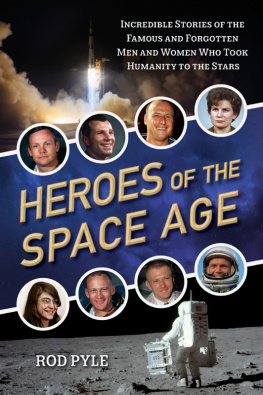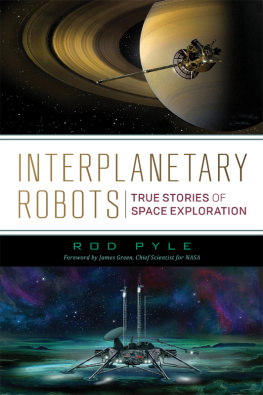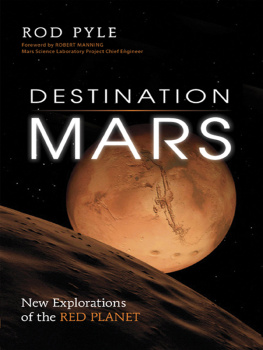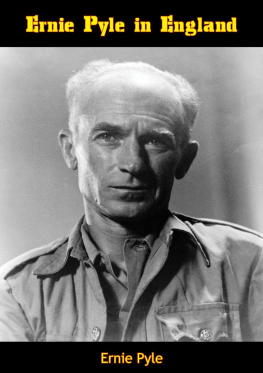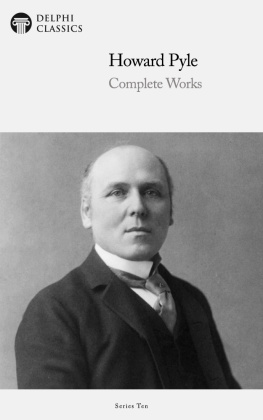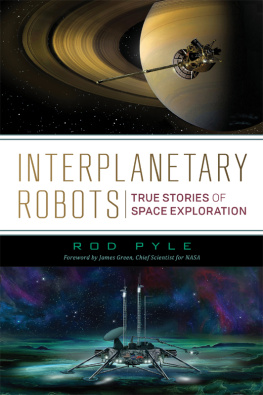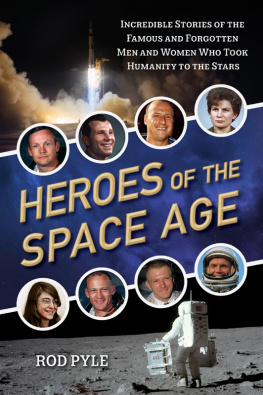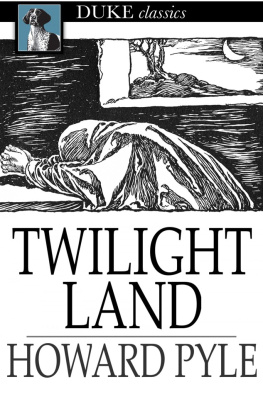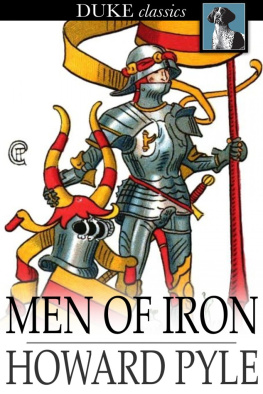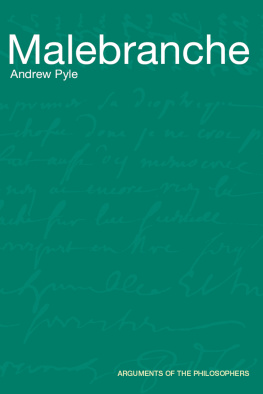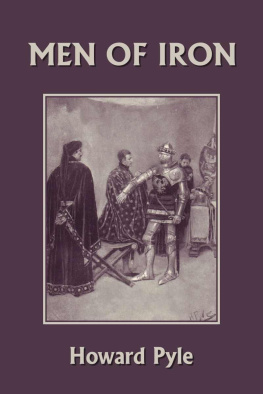Rod Pyle - Heroes of the Space Age
Here you can read online Rod Pyle - Heroes of the Space Age full text of the book (entire story) in english for free. Download pdf and epub, get meaning, cover and reviews about this ebook. publisher: Prometheus Books, genre: Non-fiction. Description of the work, (preface) as well as reviews are available. Best literature library LitArk.com created for fans of good reading and offers a wide selection of genres:
Romance novel
Science fiction
Adventure
Detective
Science
History
Home and family
Prose
Art
Politics
Computer
Non-fiction
Religion
Business
Children
Humor
Choose a favorite category and find really read worthwhile books. Enjoy immersion in the world of imagination, feel the emotions of the characters or learn something new for yourself, make an fascinating discovery.
- Book:Heroes of the Space Age
- Author:
- Publisher:Prometheus Books
- Genre:
- Rating:5 / 5
- Favourites:Add to favourites
- Your mark:
- 100
- 1
- 2
- 3
- 4
- 5
Heroes of the Space Age: summary, description and annotation
We offer to read an annotation, description, summary or preface (depends on what the author of the book "Heroes of the Space Age" wrote himself). If you haven't found the necessary information about the book — write in the comments, we will try to find it.
Heroes of the Space Age — read online for free the complete book (whole text) full work
Below is the text of the book, divided by pages. System saving the place of the last page read, allows you to conveniently read the book "Heroes of the Space Age" online for free, without having to search again every time where you left off. Put a bookmark, and you can go to the page where you finished reading at any time.
Font size:
Interval:
Bookmark:
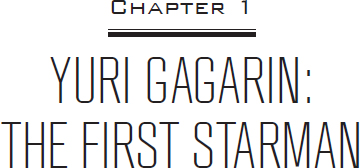
What kind of man allows himself to be pushed, pulled, nearly suffocated, half-drowned, almost crushed, then jammed into a tiny metal sphere and hurled into space atop a rocket that has launched only small dogs before him (with a high rate of mortality)?
Modest; embarrasses when his humor gets a little too racy; high degree of intellectual development evident in Yuri; fantastic memory; distinguishes himself from his colleagues by his sharp and far-ranging sense of attention to his surroundings; a well-developed imagination; quick reactions; persevering, prepares himself painstakingly for his activities and training exercises, handles celestial mechanics and mathematical formulae with ease as well as excels in higher mathematics; does not feel constrained when he has to defend his point of view if he considers himself right; appears that he understands life better than a lot of his friends.
Thus was Yuri Gagarin, the first human in space, described by a Soviet Air Force doctor in 1960. This was at the tail end of a rigorous, intensive selection process, and the young, easily embarrassed pilot was still at the head of the pack of twenty candidates, though not always for reasons easily quantified. He clearly had the aptitude to fly the mostly automated Vostok spacecraft and was physically fit. He was shorthelpful when being jammed inside the tiny capsuleand had enough experience to demonstrate the mental fortitude required for the upcoming short flight into orbit. He was also able to endure Soviet cosmonaut training, as elaborated upon above. But there was something else hinted at as people described himsomething more akin to a description that some journalist in the Capitalist West might use.
Yuri Gagarin had star power.

Figure 1.1. Yuri Gagarin: cosmonaut tough, movie star handsome.
And what exactly is star power? We all know what it looks likeAngelina Jolie, Lady Gaga, and Brad Pitt all qualify. But plenty of other beautiful movie people do not have itso it's not just looks. Nor is it simple intellectwitness Britney Spear's infamous quip about not wanting to visit Japan because they ate too much fish, and thinking that it was located in Africa. No, star power is that thing, that weird glow, that presence that some people just have. A presence that seems to suck some of the air out of every room they enter and replace it with a low, throbbing energy. Young Yuri Gagarin had thatand it was part of what propelled him into orbit.
Gagarin's origins would not have indicated that becoming the most famous man in Soviet history was an assured thing, however. Far from it. Like so many in the USSR, his family, already of very modest means when the Germans invaded the Soviet Union in 1941, had been decimated by World War Two.
Yuri Alekseyevich Gagarin was born in 1934 is the small village of Klushino, about one hundred miles west of Moscow. Despite its proximity to the capital city, the Gagarins were village folk, though Yuri's mother, Anna, had metropolitan roots. Anna had grown up in St. Petersburg and was a well-read woman, a passion she passed on to young Yuri, his two brothers, and his sister. Yuri later said of his mother, I owe her everything I have achieved in life. Yuri's father could not have been more different. He was a taciturn man of humble origins who was extremely practical and wanted his son to follow him into carpentry.
Before the war the family worked on a collective farm. By the end of the conflict, the German army had crisscrossed the country. The first impact on Gagarin's village was the arrival of Russian refugees heading east; then came the retreating Red army. The Germans followed in 1942, and the family's already difficult life became far bleaker. The Gagarins were forced out of their modest home and lived the remainder of the war in a small shelter dug from the eartha ten-foot-by-ten-foot hut made of sod and scrap lumber. The Germans sent his two older siblings to a slave labor camp in Poland, where they remained there through the end of the war, returning home only after its conclusion.
Obviously, schooling for any of the children was out of the question under such circumstances, other than what basic instruction Anna could provide under the wretched conditions. Yuri, however, remained boyishly buoyant and, when the family relocated to a village called Gzhatsk in 1946, he resumed his education under the most primitive of conditions, with a volunteer teacher instructing the children using scraps of paper and charcoal left over from the near-destruction of the city.

Figure 1.2. The Gagarin home in Gzhatsk (now renamed Gagarin), which has since been made into a museum for Gagarin. (Courtesy of Wikimedia Creative Commons, author: Kastey, licensed under CC BY-SA 3.0.)
His father, however, was unimpressed with the idea of further education for Yurihe wanted his son to practice a practical trade. But Yuri would not be dissuaded, and at age fifteen he left home to live with an uncle in Moscow, where he soon became an apprentice at a steel plant near the city. But while he was competent in the work, his heart was not on the ground with his co-workers, but rather in the sky. During the war, a Soviet fighter plane had crashed not far from the village, and when another plane landed to rescue the downed pilot, Yuri got his first look at the future. The pilots were impressed by Yuri's curiosity and spent time with him, even allowing him to sit in the cockpit of their plane. He never forgot the experience, and from that time on a passion for flight grew within him.
After secondary school, Yuri enrolled in a technical institute, learning, among other things, tractor repair. On the weekends, however, he was able to indulge his love for flight, training at a local flying club and learning to pilot biplanes and a single-wing trainer. After Yuri graduated from the technical institute in 1955, he was drafted into the Soviet Army and eventually sent to the First Chkalov Air Force Pilots School. Upon his graduation in 1957, he made two life decisions: first, he chose a posting with the Northern Fleet in an aviation unit near Norway, and second, he got married.
The new Mrs. Gagarin was Valentina Goryacheva. The couple met at a school dance, and, while Valentina had been seeking someone older and more sophisticated, she found Yuri to be charming, curious, and engaging. He was also self-assured, which she admired. For his part, Yuri fell for Valentina quickly. He was soon embraced by her family and he spent many happy hours reveling in their hospitalityuntil he took their daughter away with him to his frigid, arctic flight posting.
While settling into his new quartersa small bachelor officer apartment he shared with his wife, as there were no units for married couplesYuri was quite intrigued by the launch of Sputnik, the world's first satellite, which had been launched from Russian soil. Aside from his pride that the battered Soviet Union had risen from the ashes of war and accomplished this amazing feat in just over a decade, he was also impressed that spaceflight seemed to have come one giant step closerthis was, to him, a natural extension of flying. But he did not, at that time, see a place in it for himsurely men in spaceships were at least a decade away.

Font size:
Interval:
Bookmark:
Similar books «Heroes of the Space Age»
Look at similar books to Heroes of the Space Age. We have selected literature similar in name and meaning in the hope of providing readers with more options to find new, interesting, not yet read works.
Discussion, reviews of the book Heroes of the Space Age and just readers' own opinions. Leave your comments, write what you think about the work, its meaning or the main characters. Specify what exactly you liked and what you didn't like, and why you think so.

